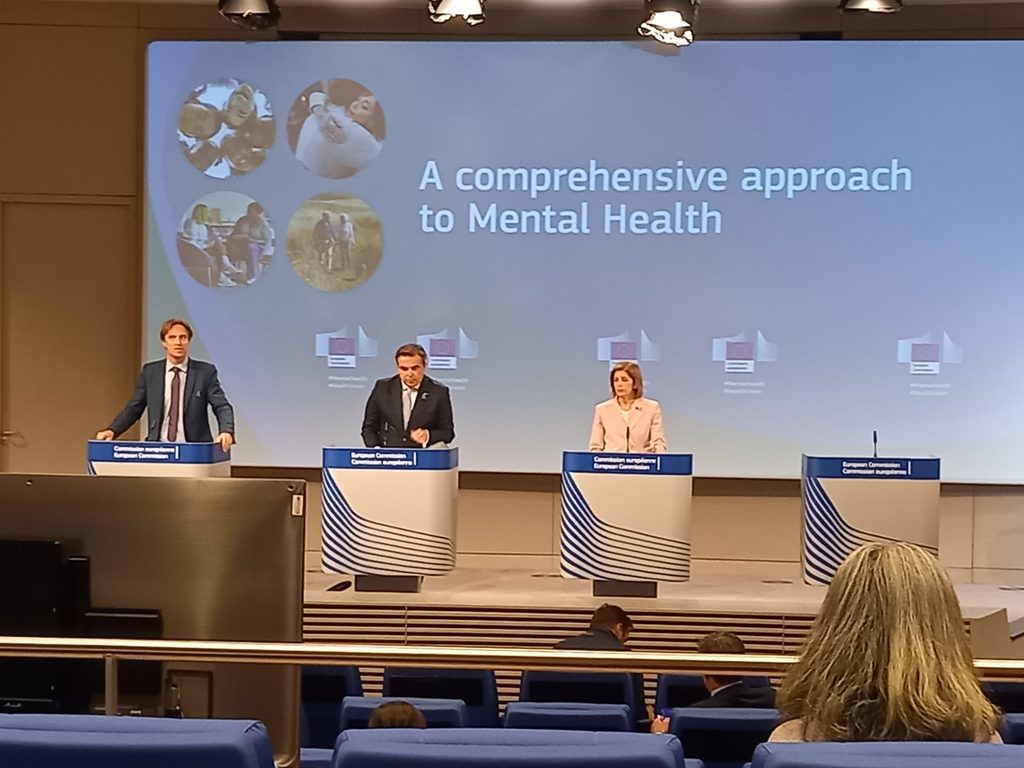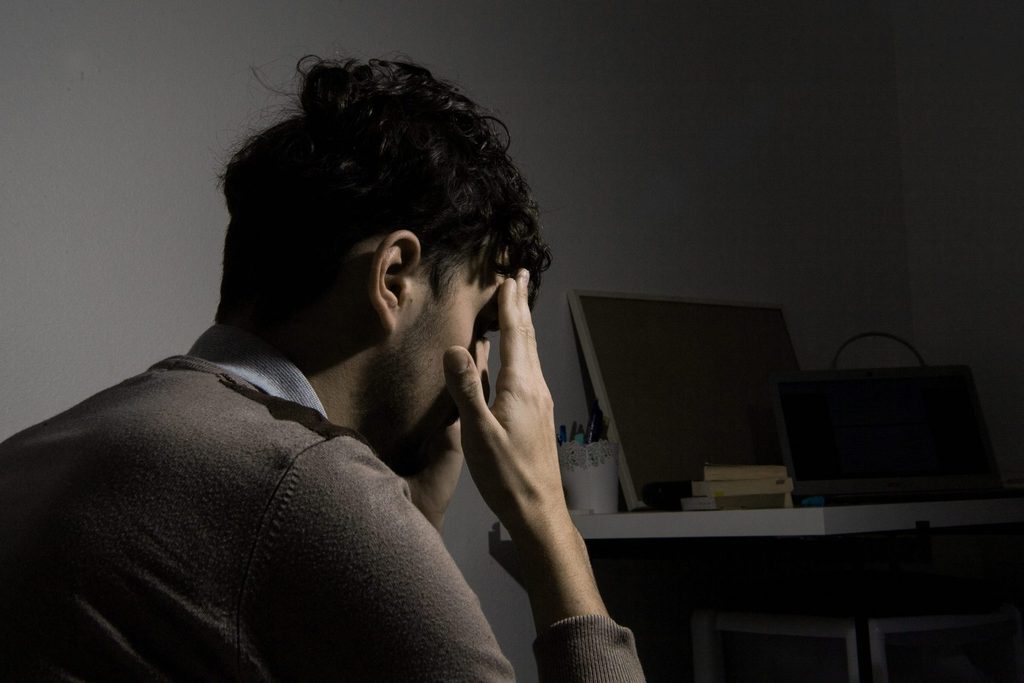The European Commission presented on Wednesday a strategy on a comprehensive approach to dealing with rising mental health problems in the EU.
The strategy is outlined in a Communication which describes 20 flagship initiatives that will support the EU member states in putting people and their mental health first. The package will be funded by €1.23 billion over the current multiannual budget (2021 – 2027).
When presenting the strategy, Vice-President Margaritis Schinas, responsible for ‘Promoting our European Way of Life’, described it as an unprecedented, comprehensive, and anthropocentric approach to mental health.
“Mental health has become a silent epidemic,” he said. “Our Communication is an important step towards a healthier Europe, where the psychosocial needs of the most vulnerable of our societies are at the heart of our efforts. Solidarity with and protection of the most vulnerable are core European values, key components of our European way of life.”
According to the EU Charter of fundamental rights, everyone has the right of access to preventive health care and the right to benefit from medical treatment under the conditions established by national laws and practices. According to the European Pillar of Social rights, everyone has also the right to timely access to affordable, preventive and curative health care of good quality.
As previously reported, the Commission supported in September 2021 a Pan-European Mental Health Coalition, initiated by WHO, to improve mental health systems in Europe after the Coronavirus crisis.
“Health care systems can differ considerably across member states, and the same can be said for the way resource mental health promotion and care services are organized,” Stella Kyriakides, Commissioner for Health and Food Safety said then in an interview.
Before the COVID-19 pandemic, mental health problems affected around 84 million people in the EU (one in six people), at a cost of €600 billion or more than 4% of GDP, with significant regional, social, gender and age inequalities. Since then, the situation has deteriorated because of the war in Ukraine and the cost-of-living crisis in the EU.
When it comes to the workplace, 27% of workers have reported experiencing work-related stress, depression, or anxiety during the previous twelve months. Already in 2019, more than 7% of people in the EU suffered from depression and 13% felt lonely most of the time. Suicide is the second leading cause of death among young people (15-19 years of age) after road accidents.
During the pandemic, people in the EU affected by loneliness doubled compared to pre-pandemic years, reaching 26% across some regions. Post-traumatic stress disorders have been generated by increased loneliness, reduced social interactions, concerns about one’s own health and that of loved ones, and uncertainty about the future.
The moment has come to present a blueprint how to protect the most vulnerable in society, Vice-President Schinas said. An overall starting point for the strategy is breaking the stigma surrounding mental health. Discrimination towards people with mental health problems is common, especially in social media but also in workplaces with 50% of workers considering that disclosing a mental health condition would have a negative impact on their career.
The comprehensive approach looks at mental health across all policy areas, recognising the multifaceted risk factors of mental-ill health. Concrete actions will include efforts such as prevention and early detection, investment in capacity building, protecting children and young people, and targeted support to vulnerable groups (e.g., displaced people and refugees).
By this strategy, we are opening up the door and putting health and mental health in the centre of EU policy, said Commissioner Stella Kyriakides. “Anyone can suffer from mental health problems. There is no health without mental health and there can be no European Health Union without equal and timely access to prevention, treatment and care for our mental health.”

The Commission presents a comprehensive approach to mental health, 7 June 2023, credit: The Brussels Times
“We often say that it’s ok not to be ok. It’s our duty to ensure that everyone asking for help has access to it. Speak out and make your whispering a shout because someone will hear you.”
One of the initiatives focuses on providing mental health support for Ukraine. The Commission will continue to contribute to strengthen psychosocial support for displaced people and people affected by the Russian war of aggression against Ukraine. It will also support humanitarian partners to increase their capacity to address the mental health needs in the most affected war regions in Ukraine.
Asked by The Brussels Times about the impact of protracted armed conflicts on mental health, she replied that it needs to be highlighted in all conflicts. “We know that any protracted conflict leads to serious mental health issues. Wherever we are, we should highlight the importance of protecting the well-being and mental health of children and not only them.”
Another flagship initiative concerns mental health at work. People spend a significant part of their time at work and a good work environment is crucial for health. Stress and psychosocial risks at work can impact mental health and lead to decreased job satisfaction, conflict, lower productivity, burnout, absenteeism, and turnover.
Around half of European workers consider stress to be common in their workplace and it contributes to around half of all lost working days. Moral harassment (mobbing) - recurrent hostile acts or personal persecution by work colleagues or superiors - can lead to long-term sick leaves and at worst to suicide. Harassment is a major problem in most member states but is hardly mentioned in the new strategy.
A non-binding Framework Agreement on harassment and violence at work was signed by the social partners in 2007. Did the Commission miss the opportunity to harmonise EU legislation?
“Addressing wellbeing and psychosocial risks at work is very important, and it is a key priority of the new comprehensive approach to mental health," a Commission spokesperson replied. “Moral harassment and violence at work are psychosocial risks at work.”
“The Communication is addressing psychosocial risks and putting forward several actions in this regard such as a peer review on legislative and enforcement approaches to address psychosocial risks at work in the member states with a view to present in the medium term an EU-level initiative on the psychosocial risks, subject to its outcomes and social partners input.”
The autonomous agreements that were concluded with cross-industry social partners in the past are still very relevant for them and the EU social dialogue committees, according to the spokesperson. The latest study by the Commission on the implementation of the Framework Agreement from 2007 was done in 2016.
M. Apelblat
The Brussels Times

